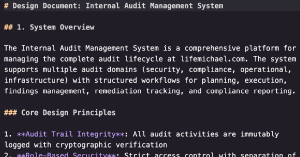The technical prowess of every software developer is undoubtedly crucial. However, in many cases, the exceptional developers will be distinguished from the good ones by their mastery of soft skills. The soft skills encompass a range of interpersonal and communication abilities that contribute to collaborative work environments and their overall success.
What’s the Difference between Hard Skills and Soft Skills?
Every job requires a combination of hard and soft skills. Hard skills refer to the technical skills and represent the specialized knowledge you bring to particular roles. When dealing with software development, the hard skills will include the technical knowledge of various programming languages, frameworks, libraries and the general knowledge in software development, such as design patterns, algorithms, architectures, and data structures. Soft skills, on the other hand, refer to workplace skills and represent how well you approach your work. These soft skills will usually include capabilities, such as empathy, teamwork, punctuality, work ethic, open minded, effective communication, and many others.

The Most Important Soft Skills in Software Development
Based on our experience during the years, some of the more important soft skills in software development include the following ones:
Effective Communication
Having effective communication is paramount. Developers must articulate ideas clearly, document code comprehensively, and collaborate seamlessly with team members. Strong communication skills facilitate knowledge transfer among team members.
Collaboration and Teamwork
Collaborative efforts are the norm in software development. Developers usually work together to create complex systems and applications. Soft skills such as teamwork, adaptability, and the ability to resolve conflicts are crucial in fostering a positive and productive team environment. When the team members have good communication with each other, the team is better equipped to overcome challenges and deliver high-quality solutions.
Problem Solving Skills
Software development requires strong problem-solving and critical-thinking skills. Soft skills, such as logical reasoning and creativity play a pivotal role in finding innovative approaches to challenges.
Time Management
Software development usually comes with tight deadlines. Software developers who excel in soft skills related to time management will be better equipped to cope with deadlines.
Adaptability to new Technologies
The software development industry is characterized by rapid changes and new evolving technologies. Soft skills such as adaptability and a willingness to embrace new tools and methodologies are crucial for developers to stay ahead. The ability to learn quickly, pivot when needed, and integrate new technologies into existing workflows is essential.
Empathy and Client Interaction
Soft skills like empathy and effective client communication are indispensable for developers involved in client-facing roles. Understanding the client’s needs, translating technical jargon into simple words, and managing expectations with the client contribute to successful project outcomes and satisfied clients.
Stress Management
Software development is not immune to continuous stress. Soft skills related to stress management are vital for maintaining a healthy work environment. Developers who can manage stress effectively contribute to having a better harmonious and productive workplace.
Conflicts Resolution
Software development is not immune to conflicts. Soft skills related to conflict resolution are vital for maintaining a healthy work environment. Developers who can navigate disagreements diplomatically will contribute to the productivity of their workplace.
Working on our soft skills as software developers is not simple. We can assist you in your journey as software developers that continuously develop their skills.










